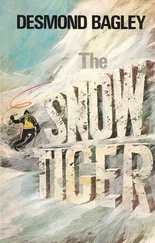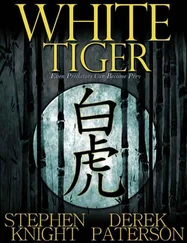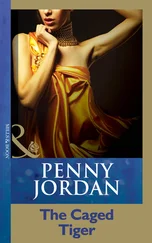"Yes, sir. Where in the city?"
"Any place you want to go, Pinky?"
No word from her.
"Take us to Connaught Place, Balram."
Neither husband nor wife talked as I drove. I still had the maharaja outfit on. Mr. Ashok looked at Pinky Madam nervously half a dozen times.
"You're right, Pinky," he said in a husky voice. "I didn't mean to challenge you on what you said. But I told you, there's only one thing wrong with this place-we have this fucked-up system called parliamentary democracy. Otherwise, we'd be just like China -"
"Ashok. I have a headache. Please."
"We'll have some fun tonight. There's a good T.G.I. Friday's here. You'll like it."
When we got to Connaught Place, he made me stop in front of a big red neon light.
"Wait for us here, Balram. We'll be back in twenty minutes."
They had been gone for an hour and I was still inside the car, watching the lights of Connaught Place.
I punched the fluffy black ogre a dozen times. I looked at the magnetic stickers of goddess Kali with her skulls and her long red tongue-I stuck my tongue out at the old witch. I yawned.
It was well past midnight and very cold.
I would have loved to play some music to pass the time, but of course the Mongoose had forbidden that.
I opened the door of the car: there was an acrid smell in the air. The other drivers had made a fire for themselves, which they kept going by shoving bits of plastic into it.
The rich of Delhi, to survive the winter, keep electrical heaters, or gas heaters, or even burn logs of wood in their fireplaces. When the homeless, or servants like night watchmen and drivers who are forced to spend time outside in winter, want to keep warm, they burn whatever they find on the ground. One of the best things to put in the fire is cellophane, the kind used to wrap fruits, vegetables, and business books in: inside the flame, it changes its nature and melts into a clear fuel. The only problem is that while burning, it gives off a white smoke that makes your stomach churn.
Vitiligo-Lips was feeding bags of cellophane into the fire; with his free hand he waved to me.
"Country-Mouse, don't sit there by yourself! That leads to bad thoughts!"
The warmth was so tempting.
But no. My mouth would tickle if I went near them, and I would ask for paan.
"Look at the snob! He's even dressed like a maharaja today!"
"Come join us, maharaja of Buckingham!"
Away from the warmth, away from temptation I walked, down the pathways of Connaught Place, until the smell of churned mud filled the air.
There is construction work in any direction you look in Delhi. Glass skeletons being raised for malls or office blocks; rows of gigantic T-shaped concrete supports, like a line of anvils, where the new bridges or overpasses are coming up; huge craters being dug for new mansions for the rich. And here too, in the heart of Connaught Place, even in the middle of the night, under the glare of immense spotlights, construction went on. A giant pit had been excavated. Machines were rumbling from inside it.
I had heard of this work: they were putting a railway under the ground of Delhi. The pit they had made for this work was as large as any of the coal mines I'd seen in Dhanbad. Another man was watching the pit with me-a well-dressed man in a shirt and tie and pants with nice pleats. Normally his kind would never talk to me, but maybe my maharaja tunic confused him.
"This city is going to be like Dubai in five years, isn't it?"
"Five?" I said contemptuously. "In two years!"
"Look at that yellow crane. It's a monster."
It was a monster, sitting at the top of the pit with huge metal jaws alternately gorging and disgorging immense quantities of mud. Like creatures that had to obey it, men with troughs of mud on their heads walked in circles around the machine; they did not look much bigger than mice. Even in the winter night the sweat had made their shirts stick to their glistening black bodies.
It was freezing cold when I returned to the car. All the other drivers had left. Still no sign of my masters. I closed my eyes and tried to remember what I had had for dinner.
A nice hot curry with juicy chunks of dark meat. Big puddles of red oil in the gravy.
Nice.
They woke me up by banging on my window. I scrambled out and opened the doors for them. Both were loud and happy, and reeked of some English liquor: whatever it was, I hadn't yet tried it at the shop.
I tell you, they were going at it like animals as I drove them out of Connaught Place. He was pushing his hand up and down her thigh, and she was giggling. I watched one second too long. He caught me in the mirror.
I felt like a child that had been watching his parents through a slit in their bedroom door. My heart began to sweat-I half expected him to catch me by the collar, and fling me to the ground, and stamp me with his boots, the way his father used to do to fishermen in Laxmangarh.
But this man, as I've told you, was different-he was capable of becoming someone better than his father. My eyes had touched his conscience; he nudged Pinky Madam and said, "We're not alone, you know."
She became grumpy at once, and turned her face to the side. Five minutes passed in silence. Reeking of English liquor, she leaned toward me.
"Give me the steering wheel."
"No, Pinky, don't, you're drunk, let him-"
"What a fucking joke! Everyone in India drinks and drives. But you won't let me do it?"
"Oh, I hate this." He slumped on his seat. "Balram, remember never to marry."
"Is he stopping at the traffic signal? Balram, why are you stopping? Just drive!"
"It is a traffic signal, Pinky. Let him stop. Balram, obey the traffic rules. I command you."
"I command you to drive, Balram! Drive!"
Completely confused by this time, I compromised-I took the car five feet in front of the white line, and then came to a stop.
"Did you see what he did?" Mr. Ashok said. "That was pretty clever."
"Yes, Ashok. He's a fucking genius."
The timer next to the red light said that there were still thirty seconds to go before the light changed to green. I was watching the timer when the giant Buddha materialized on my right. A beggar child had come up to the Honda City holding up a beautiful plaster-of-paris statue of the Buddha. Every night in Delhi, beggars are always selling something by the roadside, books or statues or strawberries in boxes-but for some reason, perhaps because my nerves were in such a bad state, I gazed at this Buddha longer than I should have.
…it was just a tilt of my head, just a thing that happened for half a second, but she caught me out.
"Balram appreciates the statue," she said.
Mr. Ashok chuckled.
"Sure, he's a connoisseur of fine art."
She cracked the egg open-she lowered the window and said, "Let's see it," to the beggar child.
He-or she, you can never tell with beggar children-pushed the Buddha into the Honda.
"Do you want to buy the sculpture, driver?"
"No, madam. I'm sorry."
"Balram Halwai, maker of sweets, driver of cars, connoisseur of sculpture."
"I'm sorry, madam."
The more I apologized, the more amused the two of them got. At last, putting an end to my agony, the light changed to green, and I drove away from the wretched Buddha as fast as I could.
She reached over and squeezed my shoulder. "Balram, stop the car." I looked at Mr. Ashok's reflection-he said nothing.
I stopped the car.
"Balram, get out. We're leaving you to spend the night with your Buddha. The maharaja and the Buddha, together for the night."
She got into the driver's seat, started the car, and drove away, while Mr. Ashok, dead drunk, giggled and waved goodbye at me. If he hadn't been drunk, he never would have allowed her to treat me like this-I'm sure of that. People were always taking advantage of him. If it were just me and him in that car, nothing bad would ever have happened to either of us.
Читать дальше












